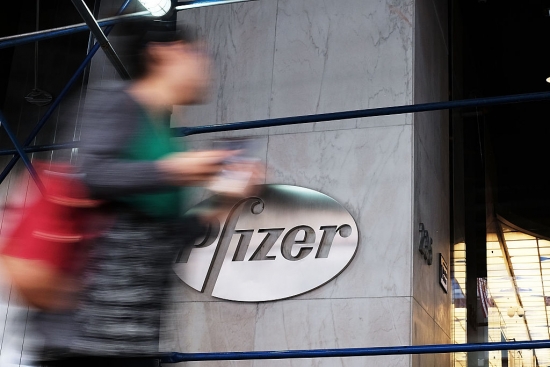-
Tips for becoming a good boxer - November 6, 2020
-
7 expert tips for making your hens night a memorable one - November 6, 2020
-
5 reasons to host your Christmas party on a cruise boat - November 6, 2020
-
What to do when you’re charged with a crime - November 6, 2020
-
Should you get one or multiple dogs? Here’s all you need to know - November 3, 2020
-
A Guide: How to Build Your Very Own Magic Mirror - February 14, 2019
-
Our Top Inspirational Baseball Stars - November 24, 2018
-
Five Tech Tools That Will Help You Turn Your Blog into a Business - November 24, 2018
-
How to Indulge on Vacation without Expanding Your Waist - November 9, 2018
-
5 Strategies for Businesses to Appeal to Today’s Increasingly Mobile-Crazed Customers - November 9, 2018
Pfizer-Allergan merger scrapped after Obama cracks down on tax breaks
In rapid response to the US Treasury Department’s latest anti-inversion measures announced after close of business on April 4, Pfizer Inc. announced early on April 6 that its merger agreement with Allergan plc had been terminated by mutual agreement of the companies.
Advertisement
A corporate inversion typically involves a US company “merging” with a smaller foreign firm in a country with a low corporate tax rate, and nominally moving its headquarters there.
If the deal happened, Pfizer may have shifted its headquarters from NY to Ireland where Allergan is based. If that deal had materialized, it could have enabled the US drug maker to keep a large chunk of its profits out of reach of the country’s tax collectors.
The rules issued Monday will make it much more hard for companies to structure such loans from now on, which could contribute to companies deciding that an inversion simply isn’t worth it. According to Steven M. Rosenthal, a senior fellow at the Urban-Brookings Tax Policy Center, the change could also hit companies that have already completed their inversions.
Shire has said it is confident its $32bn deal to buy Baxalta will go ahead as planned, despite the abandonment of Pfizer’s merger with Allergan.
“We remain focused on continuing to enhance the value of our innovative and established businesses”, Pfizer Chief Executive Officer Ian Read said in a statement.
The halting of the Allergan deal is the second aggressively sought-after inversion transaction that fell through for Pfizer due to tightening US regulations.
“This ad hoc and arbitrary attempt to single out and damage the growth opportunities of companies operating within the current law is unprecedented, unproductive and harmful to the US economy”.
He added: “While we were surprised that the Treasury issued rules, we were prepared for that contingency”.
Read, Pfizer’s CEO for five years, has said the deal was needed because U.S.-based drugmakers are at a major disadvantage to their multinational rivals based in Europe and elsewhere, who face lower corporate tax rates.
He also suggested that the new Treasury rules would not stop the company from doing other stock-based acquisitions as soon as this autumn.
Advertisement
AbbVie abandoned its $55bn takeover of Ireland-domiciled Shire in 2014. And on the heels of the new Treasury Department rules, Obama held a news conference Tuesday, saying the rules are meant to prevent “one of the most insidious tax loopholes out there” and make wealthy corporations shoulder their tax responsibility like working-class Americans.





























